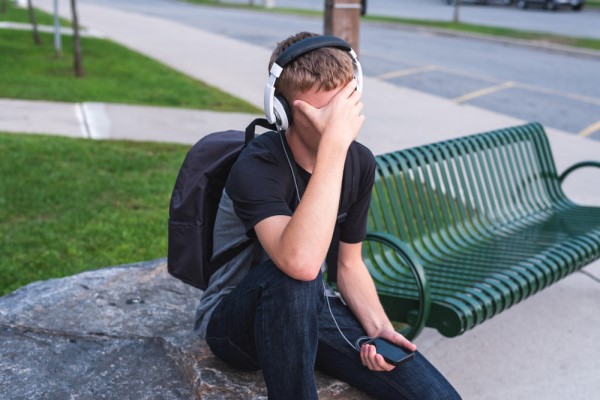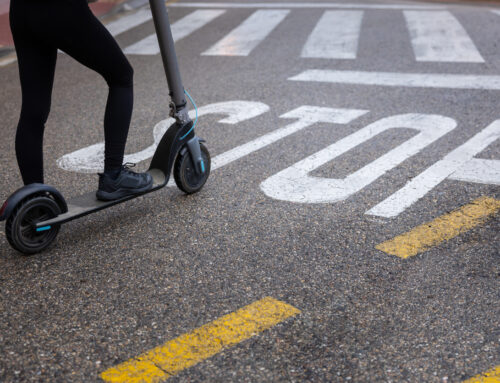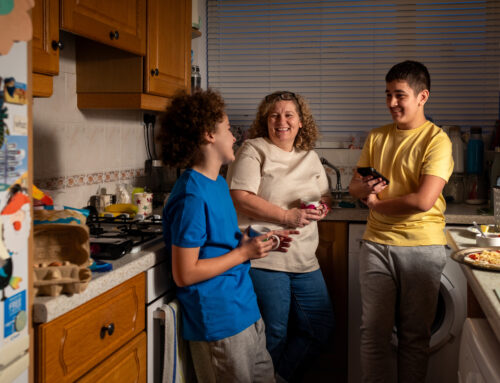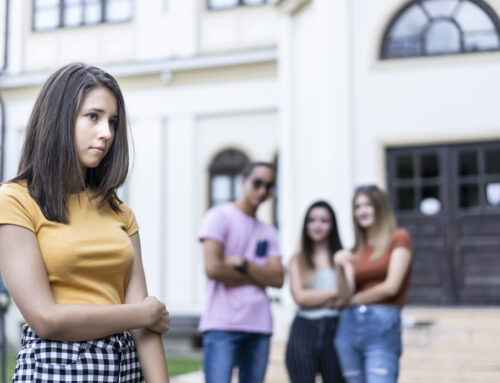Drinking at School: Why Alcohol Won’t Fix Anxiety or Self-Consciousness

While many parents will tell you they remember their high school and college years as some of the best of their lives, they often forget the challenges that come with being a teenager or young adult. One of the biggest hurdles many young people face is learning to navigate in-person social situations comfortably. Even those who appear to communicate with ease on social media can feel anxious or self-conscious when they must interact face-to-face with peers and teachers.
Unfortunately, this discomfort may lead some teens to try alcohol as a “social elixir.” They may have heard that alcohol helps you relax and more comfortably engage with other people, but the consequences of underage drinking, especially at school, are about as far from fun as you can get! Here are some facts you need to understand about drinking at school and during afterschool activities:
Alcohol is a depressant.
Yes, you read that right. Alcohol depresses the central nervous system. Because it impacts the area of your brain that controls inhibition, you may initially feel more relaxed. However, alcohol also affects your judgment and can lead you to say and do embarrassing things or cause you to engage in risky behaviors that can ultimately increase anxiety. In fact, underage drinking has been linked to a number of mental health issues, including elevated levels of depression, a worsened stress response, and a higher likelihood of developing alcohol misuse as an adult.
Drinking at school can cause serious problems.
If you’re considering drinking alcohol before, during, or afterschool to calm your anxiety (or for any other reason), you need to realize what a terrible idea that is. Not only is underage drinking illegal, but it can also harm your health and happiness in the following ways:
- Underage drinking impacts academic performance. Alcohol affects your ability to learn and retain information. Do you really want to jeopardize your grades and academic future?
- Alcohol impairs judgment and coordination. Alcohol may cause you to stagger, stumble, or have accidents. You risk embarrassing or injuring yourself in front of your classmates and teachers.
- Teenage alcohol misuse could get you suspended — or worse. Most schools have strict policies forbidding alcohol on campus, especially for minors. If you’re intoxicated at school or in possession of alcohol, you could be suspended or expelled. Additionally, North Carolina has a zero-tolerance policy. Anyone under 21 caught consuming or possessing alcohol could be charged with a Class 1 misdemeanor.
Healthy coping skills are always better than alcohol.
Rather than buying into the myth that alcohol is a quick fix for anxiety, try these strategies that can truly help you deal with your feelings in a positive way:
- Learn some relaxation techniques. Meditation or deep breathing exercises can be used to manage anxiety, depression, or negative feelings.
- Challenge negative thoughts. Most of us engage in negative self-talk from time to time – those inner voices that tell us we aren’t good enough or don’t belong. The trick is to try and turn off those negative thoughts as soon as they arise and replace them with positive ones, like how good you are at learning Spanish, your skills on the basketball court, or that you’re a supportive friend.
- Take small steps. If social situations make you antsy, start by engaging in something you enjoy. Begin with less intimidating settings and gradually work your way up to more challenging ones as your confidence grows.
- Seek support if you need it. If your anxiety or self-consciousness feels overwhelming, you don’t have to face it alone. Talk to a family member, close friend, or mental health provider about your feelings. They care about you and want to help you feel better.
Most of your peers don’t drink alcohol.
Also, keep in mind that by staying sober, you’re far from alone. Sure, movies and social media make it seem like everyone your age is drinking alcohol, but they aren’t. In our 2023 State of Underage Drinking in North Carolina survey, only 47% of high school students admitted they had tried alcohol. According to the 2022 National Survey on Drug Use and Health (NSDUH), only 49% of college students ages 18 to 22 had consumed alcohol in the last month (and many of those surveyed were of legal drinking age).
This means that whether you’re in high school or college, more than half of your peers choose not to drink alcohol. Instead, there’s a growing trend among young people to drink mocktails. Meanwhile, “dry bars” are opening around the country. So the next time someone tries to say that you have to drink alcohol to have a good high school or college experience, tell them that simply isn’t true.
Be your best self!
We know life can be stressful, and sometimes it’s tempting to look for a magic potion to make everything better. But alcohol isn’t it, and underage drinking can keep you from becoming the best version of yourself.
Visit the Talk it Out NC website for tools that can help you say “no” to alcohol, and Take the Pledge to stop underage drinking.



